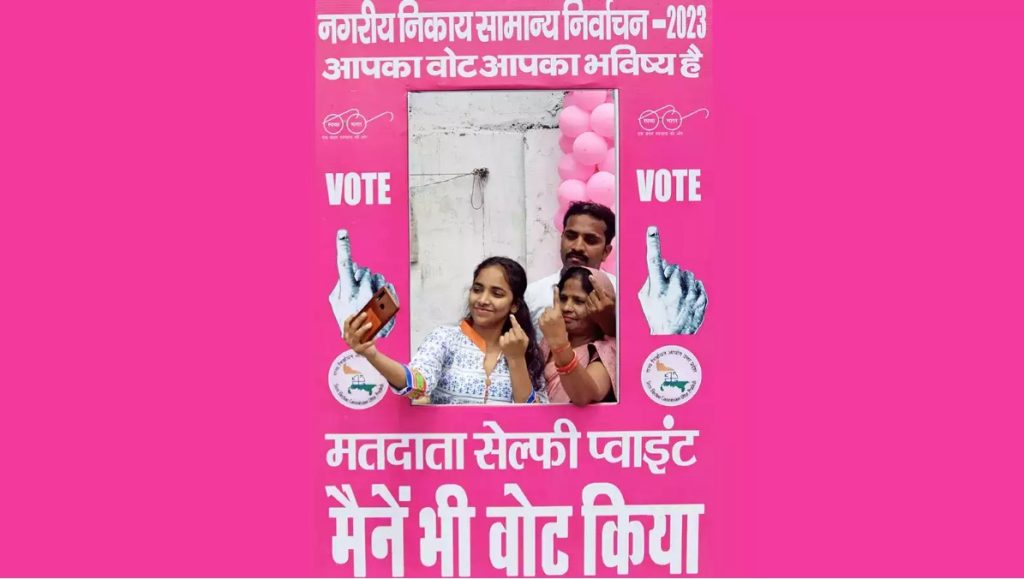The latest claim is that India had democracy long before the West did. This should not cause incredulous laughter. This is not as far-fetched as it sounds.
Early democracies
Ancient Greece is often credited with inventing democracy. But only a thin upper crust of male Greek citizens could vote. Citizens did not elect representatives: they had to be physically present in the assembly. Clearly this was feasible only for small city-states with a limited number of voters. They had elected rulers rather than dynastic monarchs, but were republics rather than democracies.
Bharatiya Janata Party (B JP) historians say that Vedic texts mention institutions like sabhas and sangathans. The mere existence of such assemblies is insufficient to constitute democracy. After all, the Soviet Union had three political parties and several regional assemblies, but could not be called a democracy. Elections and assemblies are necessary but not sufficient conditions.
Indian democracy remains highly flawed. But we can claim, warts and all, to be the first to start with universal suffrage, more than can be said of France or Britain
From the sixth century BC onwards, in the Buddhist era, India had several states where assemblies had some control over rulers and participated in the administration. Examples include the Sakyas of Kapilavastu, Koliyas of Ramagrama, and Lichchhavis of Vaishali. Marxist historians agree with BJP historians on this issue, so this is not a left-versus-right issue.
But neither the ancient Greek nor Indian republics were democracies in the modern sense. The Indian caste system was avowedly hierarchical and did not recognise equality of all citizens. In many cases an upper crust alone could vote, as in ancient Greece.
Democracy today rests on the notion of inalienable fundamental rights for all humans. This idea evolved in the European Enlightenment of the 18th century. It was enshrined in a formal document called “The Declaration of the Rights of Man and of the Citizen” during the French Revolution. This created a very imperfect democracy without votes for women and slaves. But being rooted in the notion of fundamental human rights, democracy in France — and later in other western countries — gradually eliminated sundry forms of discrimination and ended with universal suffrage.
Britain is called ‘the mother of parliaments’. But its early parliaments were the domain exclusively of the landed gentry. The vote was extended to middle-class property owners by the Great Reform Act of 1832 (leading Karl Marx to call this a ‘bourgeois democracy’). To Marx’s astonishment, Britain in 1867 extended the franchise to most adult males, ending upper-class rule and making possible a Labour Party representing workers.
Full male adult franchise came later in 1918. British women had to wait till 1928 to get the vote. In France, women did not get the vote till 1944.
The latest claim that India had democracy long before the West did is not as far-fetched as it sounds
Why Indian democracy is unique
India became independent in 1947 and created a new Constitution in 1950 rooted in universal fundamental rights. As noted, India can claim to have created some of the earliest republics but not the earliest democracies.
India became a democracy only in 1950 with the adoption of the Indian Constitution, well after the French and American Revolutions.
But India can claim to be the first country to have universal suffrage from the very outset. In other countries, democracies started with the dilution of monarchies, evolved to rule by the gentry, and gradually evolved to universal suffrage. India did not start with upper-class rule, and from its inception provided voting rights for all regardless of class, caste, religion or gender.
In this respect, India became a full democracy even before the US. That country abolished slavery and gave the vote to black slaves after the Civil War of 1861-65. But southern US states enacted what were called ‘Jim Crow’ laws that, in effect, prevented most blacks from voting.
True universal suffrage in the US came only later with the Civil Rights Act of 1965. By then India had already held three elections with universal suffrage.
Let us not claim too much. India has had innumerable instances, especially in the earliest elections, when upper caste villagers prevented the lower castes from voting. Gangsters have been widely used to capture polling booths and stuff ballot boxes. Election rules on spending are widely violated.
Besides, democracy is not just about elections. It is also about upholding fundamental rights, ensuring equality of treatment, and permitting free dissent between elections. In these areas, Indian democracy remains highly flawed. But we can claim, warts and all, to be the first to start with universal suffrage, more than can be said of France or Britain.


